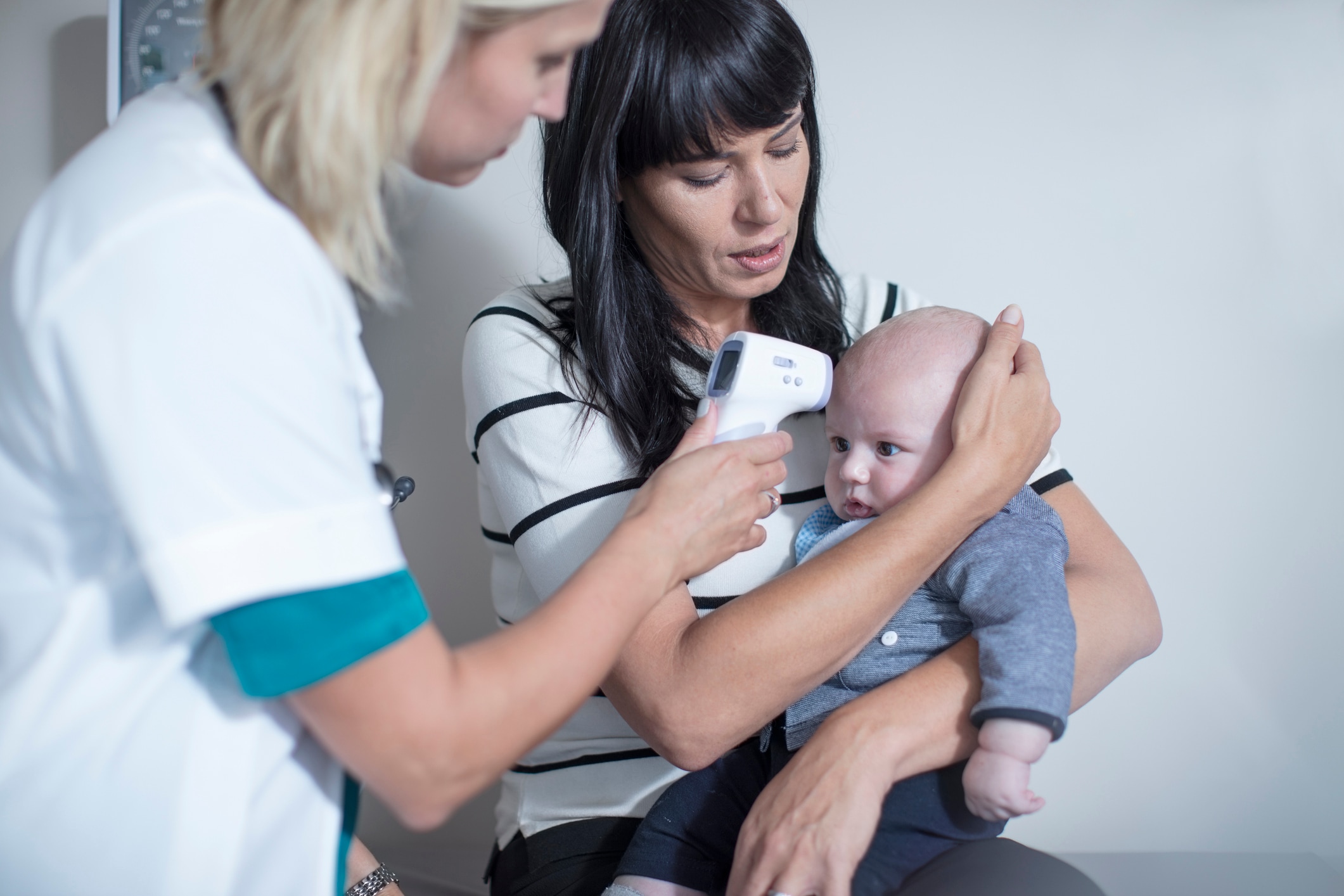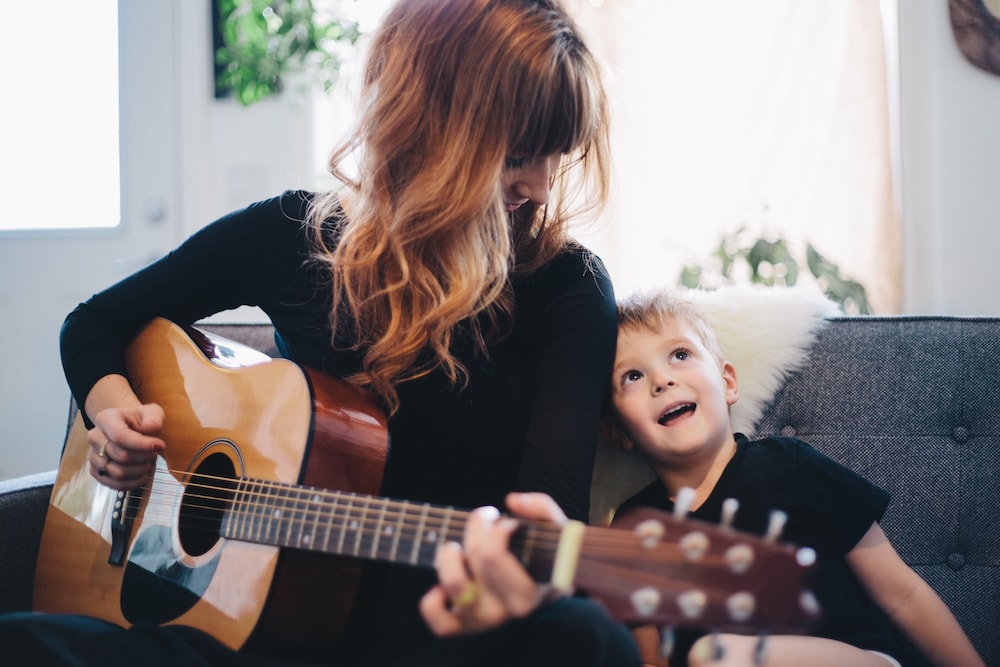In this article
When is a kid too sick for you to come in and provide child care? If you’re a nanny or babysitter contemplating going into work — or not — this can be a hard call to make (not to mention awkward). Is a cold too much for you to handle? Probably not. What about a really bad cold? Hard to say. How about the flu?! Unlike day cares, which often lay everything out in their sick policies, there’s typically more gray area when it comes to caring for an ill child as a nanny or sitter.
“Caring for a mildly ill child is encompassed in the role and responsibilities of a nanny,” says Michelle LaRowe, lead educator at Global Nanny Training. “As part of the written work agreement, nannies and families should define what constitutes ‘mildly ill’ and the expectations and procedure surrounding medication administration.”
Of course, not every child care provider has a nanny contract (though they should) or babysitter contract, and this still leaves room for interpretation when it comes to illnesses outside the scope of “mild.” Whether you’re trying to figure out what you’re OK with or don’t know a tactful way to inform your employer you’re not comfortable coming in, here’s what doctors and child care experts say about caring for sick kids.
What is “too sick” for child care?
While there’s no hard and fast rule that dictates when nannies and sitters should steer clear of kids due to illness, there are general guidelines doctors recommend.
“Different sitters have different comfort levels, but if a child can’t keep any fluids down or their fever is causing them to be extremely weak and have low energy, then it’s probably a good idea for sitters to stay home,” notes Dr. Christina Johns, a pediatric emergency care physician and senior medical advisor at PM Pediatric Care. “Also, any illness that requires a lot of ‘cleanup’ or clinical care is probably best kept with the parent or primary caregiver.”
When is a sick child most contagious?
Kids generally aren’t contagious once they’re fever-free for 24 hours (without fever-reducing medication) and/or are able to tolerate fluids without vomiting, according to Johns.
Dr. Donna Tyungu, chief of pediatric infectious diseases at Oklahoma Children’s Hospital OU Health, adds that kids infected with influenza are typically contagious for three to seven days, and those with COVID-19 are “contagious a few days before symptoms and typically five to 10 days afterward.”
“Previously healthy children infected with RSV are typically contagious for three to eight days while infants with weaker immune systems can spread the virus for up to four weeks,” Tyungu says, adding: “However, nannies with otherwise healthy immune systems, even if infected with RSV, will likely only experience a mild cold.”
Read more:
How to tell your employer you’re not comfortable caring for a sick child
In an ideal situation, you have a work agreement that clearly defines what constitutes a child being “too sick” for you to report to work. But if you don’t, and you’re not comfortable going to work, your best bet is to be honest and direct with your employer.
“If a child is ill beyond the scope of your comfort level, be upfront and then articulate why,” LaRowe says. “For example, if a child has an ear infection but is on medication, is the discomfort with administering medication? Or is it that you don’t want to get sick yourself? Addressing these topics is essential to ensure everyone is on the same page with regards to expectations surrounding sick care.”
“If a child is ill beyond the scope of your comfort level, be upfront and then articulate why.”
—Michelle LaRowe, lead educator, Global Nanny Training
Should you expect pay if you don’t work when a child is sick?
If you have a nanny contract, sick pay is absolutely something that would be outlined in it, LaRowe notes, but again, most babysitters don’t have one, nor does every nanny.
“Nannies and parents should outline the expectations surrounding sick days and pay in their work agreement,” LaRowe says. “Specifically, the contract should address the following scenarios: If the child is sick and the nanny does not report to work; if the child is sick and the nanny is asked not to report to work; and if the nanny becomes sick as a result of caring for a child at work.”
Put another way: Depending on the situation (along with how many hours you normally work and how long you’ve been with a family), you may or may not get paid. For general reference, Hand in Hand, a domestic employers network that advocates for workers’ rights, recommends the following formula for paid sick days:
- Full-time employees: Three to five days per year.
- Part-time employees: One hour for every 30 hours worked.
Emily Marinucci, a babysitter in Cranford, New Jersey, says, “If I’m set to babysit for a date night and the parents cancel because a child is sick, I typically don’t get paid.”
On the flip side, when a child got sick in her care recently and the parents were far away, they paid her extra when they returned. “There was no prior knowledge that he was going to get sick,” she explains. “And when I called the parents to explain what was going on, they headed back home and gave me extra pay for the extra care.”
Ways to mitigate risks when caring for a sick child
Whether you decide to care for a sick child or are returning to work after a child’s recent illness, here’s how to mitigate your risk of getting sick, according Tyungu:
- Vaccination. “Being up to date on vaccination is your first line of defense against infections,” notes Tyungu. “All nannies should be up to date on their vaccinations, including winter-season vaccinations, such as influenza and COVID-19.”
- Mask up. “For influenza/RSV, a simple surgical mask can help prevent infection,” explains Tyungu. “Still, a higher level of masking, such as an N95 mask, is needed to help care for children with COVID-19.”
- Clean surfaces frequently. This includes toys, door handles and tabletops.
- Wash hands. “Exercise good hand hygiene by frequently washing throughout the day.”
- Mind your hands. “Avoid touching your own eyes, mouth or face throughout the day.”
- Keep your distance. “Avoid kissing, hugging or close contact when symptoms are present.”
What if you are immunocompromised?
If you’re immunocompromised, speak to your doctor. “If a nanny has an immunocompromising illness, they should also be up to date on all vaccinations but may choose to refrain from caring for a sick child until symptoms have resolved,” notes Tyungu. “They should ask their specific care provider for direction in those instances.”





